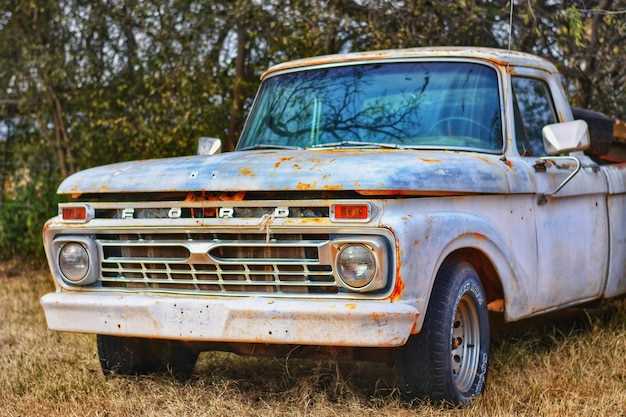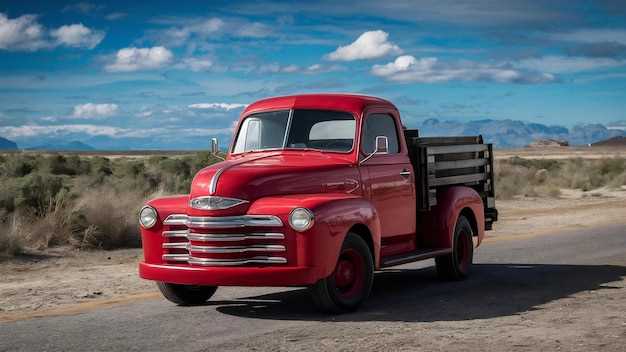
The pickup truck stands as a symbol of American resilience and independence, embodying the rugged spirit that has defined the nation for decades. This versatile vehicle transcends its utilitarian purpose, becoming a defining element of American cultural identity. The evolution of the pickup truck mirrors the shifting landscape of American society, from agricultural roots to suburban lifestyles and urban adventures.
Historically, pickup trucks have served as essential tools for laborers, farmers, and craftsmen, connecting them to their work and communities. These vehicles represent more than mere transportation; they signify a hardworking ethos and a commitment to the land. As they have evolved, pickup trucks have also captured the imagination of those who value adventure and the great outdoors, further solidifying their place in the cultural lexicon of America.
Today, the pickup truck is not only a practical choice for many but also a canvas for personal expression. From customization options to brand loyalty, these vehicles reflect the diverse identities and values of their owners. The status of the pickup truck as an American icon highlights its role in shaping narratives about freedom, reliability, and the quintessential American way of life. By examining the cultural significance of pickup trucks, we gain insight into the complexities of American identity and the values that unite its people.
The Evolution of Pickup Trucks in American Society

Pickup trucks have undergone significant transformation since their inception in the early 20th century. Initially designed as utilitarian vehicles for farmers and laborers, these trucks played a vital role in the agricultural economy, providing essential support for transporting goods and tools. Their straightforward design, featuring a cab and an open cargo area, made them ideal for practical use.
By the 1950s and 1960s, the pickup truck began to shift from a purely functional vehicle to a symbol of personal freedom and rugged individualism. Automakers started to recognize this potential, introducing models with more powerful engines, improved aesthetics, and increased comfort. This marked the beginning of the pickup truck’s dual identity: both a workhorse and a personal vehicle, appealing to a wider demographic beyond just rural drivers.
The 1970s and 1980s brought further changes, driven by the rising influence of suburban living. Manufacturers enhanced the features of pickup trucks, incorporating luxury elements such as air conditioning, power steering, and advanced audio systems. This evolution coincided with the burgeoning culture of outdoor recreation, where pickups became associated with camping, boating, and other leisure activities, positioning them as icons of an active lifestyle.
In the 1990s and 2000s, the popularity of pickup trucks surged, leading to a boom in their market segment. The advent of models like the Ford F-Series and Chevrolet Silverado solidified their status as best-sellers. These trucks not only catered to the needs of businesses and tradespeople but also attracted families seeking spacious and versatile vehicles. As a result, pickups became a staple on American roads, embodying a blend of tradition and contemporary lifestyle.
Today, the evolution of pickup trucks continues, with advancements in technology and design that prioritize sustainability and efficiency. Manufacturers are now focusing on electric pickups, integrating smart technology, and enhancing safety features, aligning with contemporary environmental concerns. This shift indicates that while pickups remain rooted in American cultural identity as symbols of strength and reliability, they are also adapting to meet the demands of a changing society.
The history of pickup trucks reflects broader trends in American culture, demonstrating how these vehicles resonate with values of independence, versatility, and progress. As they evolve, pickup trucks remain an enduring icon of American identity, symbolizing both tradition and innovation in a modern context.
How Pickup Trucks Shape Local Economies and Communities

Pickup trucks serve as a vital component in the economic structure of many American communities. Their multifunctionality makes them essential for a variety of sectors including agriculture, construction, and small businesses. Farmers rely on pickups for transporting goods, equipment, and livestock, which contributes significantly to local agricultural economies. By providing the means for efficient transportation, these vehicles enable farmers to access larger markets and reduce operational costs.
The construction industry also heavily depends on pickup trucks for their versatility. Construction workers use these vehicles to haul tools, equipment, and materials to and from job sites. This capability accelerates project timelines and enhances productivity. Local contractors often invest in pickups, thereby circulating money within the local economy as they purchase vehicles, fuel, and maintenance services from nearby businesses.
Small business owners find pickup trucks invaluable for logistics and service delivery. Whether it’s a landscaping company or a plumbing service, the ability to transport employees and equipment effectively can make or break a business. By facilitating the growth of small enterprises, pickup trucks help to generate employment and foster community development. Local shops, fuel stations, and repair services benefit from the increased business activity that accompanies the usage of these vehicles.
Moreover, pickup trucks contribute to community identity and pride. In rural areas, they often symbolize self-reliance and hard work, reinforcing social bonds among residents. Community events centered around trucks, such as parades or local fairs, further strengthen these connections. They become a part of the cultural fabric, embodying shared values and traditions.
Overall, pickup trucks are not merely vehicles; they are instrumental to the economic vitality and social cohesion of local communities. Their role in supporting various industries, facilitating small business success, and fostering community identity solidifies their importance as cultural symbols within American society.
Exploring the Symbolism of Pickup Trucks in American Media and Advertising
Pickup trucks have become a central element in American media and advertising, symbolizing resilience, ruggedness, and practicality. These vehicles are often portrayed as tools for hard work, embodying the spirit of the American worker. Advertisements frequently depict pickup trucks in settings that highlight their versatility, such as construction sites, rural landscapes, or off-road adventures, reinforcing the perception that these trucks can handle any challenge.
In popular culture, pickup trucks are often associated with a distinct lifestyle characterized by independence, freedom, and a connection to nature. Movies and television shows frequently feature protagonists driving pickup trucks, underscoring themes of adventure and self-reliance. The imagery used in these narratives not only represents the truck’s utility but also taps into deeper cultural values such as masculinity and American pride.
Moreover, the advertising strategies employed by automotive brands capitalize on the emotional appeal of pickup trucks. Commercials often showcase family moments, outdoor escapades, and bonding experiences, presenting the truck as not just a vehicle, but a vessel for creating memories. This narrative encourages consumers to associate pickup ownership with fulfilling their aspirations for connection and adventure.
The symbolism of pickup trucks extends beyond mere functionality; they are a representation of the American Dream. Advertisements highlight the vehicle’s role in enabling ambition, portraying it as a partner in achieving personal and professional goals. This perception is reinforced by slogans emphasizing reliability and strength, traits that resonate strongly with potential buyers.
Furthermore, the cultural significance of pickup trucks is evident in their integration into local traditions and events, such as rodeos and country music festivals. These settings showcase the truck as a cultural artifact that embodies regional identity and values. As pickup trucks continue to evolve through marketing campaigns, they remain deeply embedded in the tapestry of American culture, reflecting both individual identities and broader societal trends.




